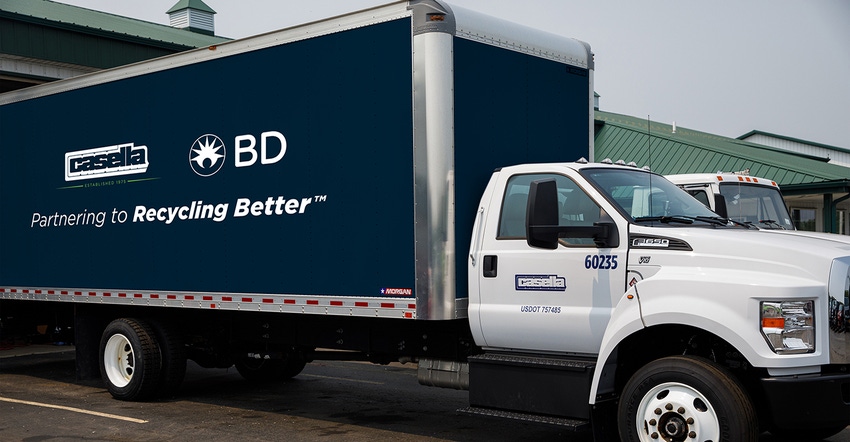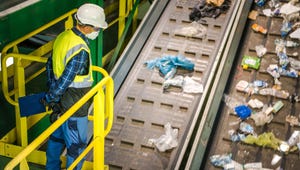In partnership with waste management company Casella, BD will assess the feasibility of recycling the materials safely and effectively into new medical products via mechanical and chemical processes.
February 15, 2023

Through its decade-long partnership with waste management company Casella, medical device giant BD has succeeded at recycling 100% of its non-saleable injection system products — off-spec syringes and related manufacturing waste — and diverting it from landfill. Over the course of the partnership, BD claims it has increased the recycling rate of these plastic, glass, and metal material streams by an astonishing 255%. But it wants to do more, and has started a pilot program to recover and recycle BD syringes discarded by healthcare facilities.
The pilot will assess the feasibility of recycling these products back into the manufacturing process, creating additional local sourcing options and alleviating pressures on the critically challenged supply-chain system, said BD.
BD produces billions of syringes each year, and healthcare facilities represent a key opportunity for reclaiming these products. That is not without its challenges, however, because of the various components and steps involved in the process, including safe handling of bio-hazardous material.
“As part of this pilot, we are assessing the material standards that need to be met to ensure that we can recycle these materials safely and effectively into new products,” Vice President and General Manager of Injection Systems Chee Lum told PlasticsToday. “This includes treating, sterilizing, and decontaminating recovered materials before being considered for re-introduction as recycled content in medical devices.” Initial results are expected in the first half of 2023.
Mechanical recycling is currently used to process syringes manufactured in house, explained Lum. “As part of the pilot program, we are evaluating a variety of recycling capabilities for processing syringes discarded by healthcare facilities, including mechanical recycling and advanced chemical recycling methods as we look to scale these solutions,” said Lum.
“The opportunity to drive innovation around material sustainability by building a circular value chain for managing post-consumer healthcare plastics furthers our commitment to addressing and managing the most relevant environmental issues facing our business and stakeholders today,” said BD in the news release. “We know work like this can make a lasting, positive impact, which is why we continue to challenge ourselves and our partners to find these opportunities to grow, improve, and do what is right. Both BD and Casella are committed to helping build systems that enable short- and long-term value and sustainability.”
BD has committed to creating meaningful, measurable change over the next decade, as articulated in its BD 2030+ environmental, social, and governance goals.
Casella was founded in 1975 as a refuse removal business in Rutland, VT. It built Vermont’s first recycling facility in 1977, and views waste as “a resource for producing renewable energy and as a raw material for manufacturing new products.” In 2013, it entered into a partnership with BD, recovering, processing, and recycling waste from 12 injection systems production sites. Today, Casella recovers and processes waste from more than 30 BD locations.
About the Author(s)
You May Also Like




